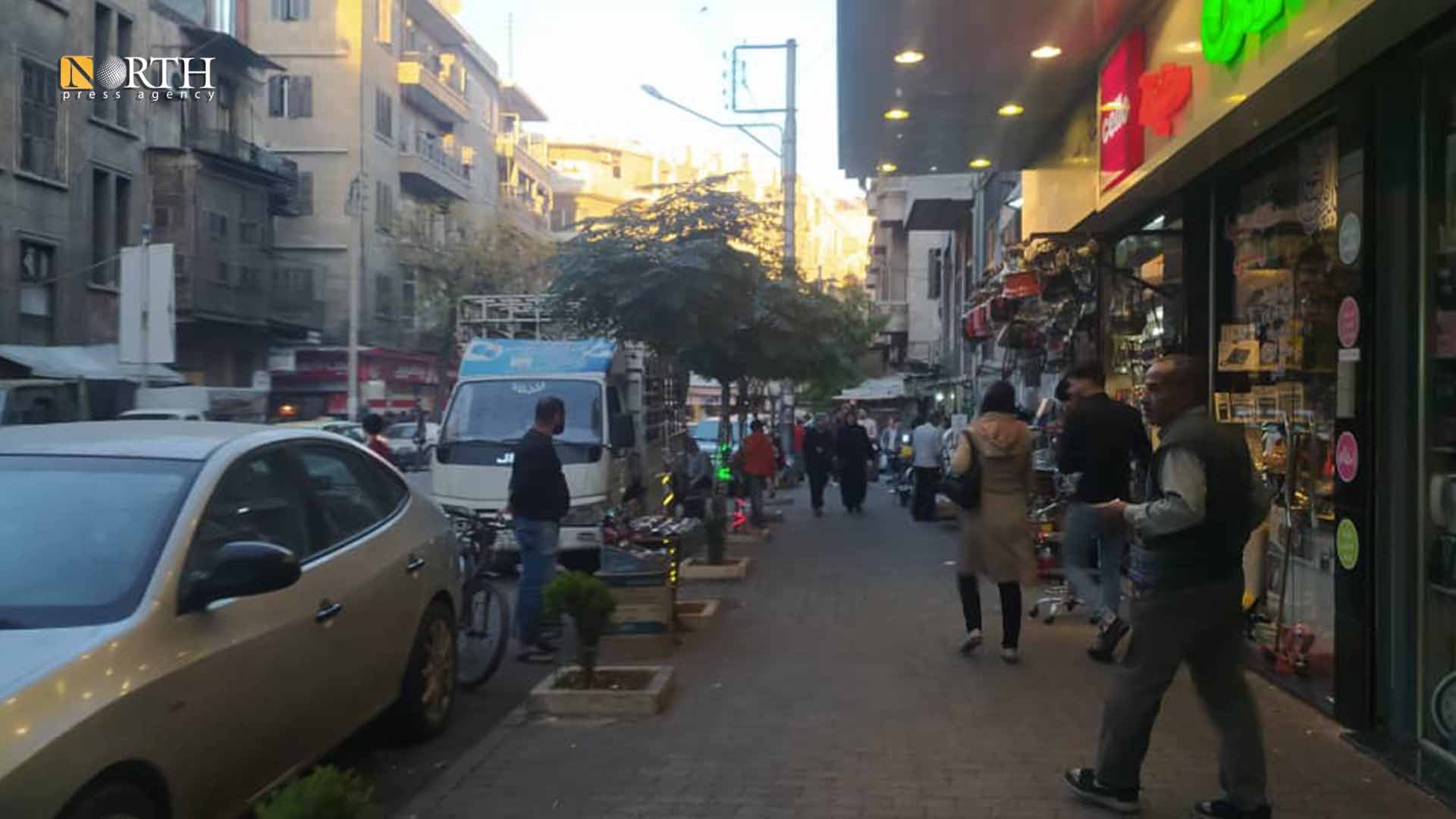ALEPPO, Syria (North Press) – The 36-year-old Muhammad al-Sabbagh, a spare parts trader of Aleppo, north Syria, was forced to transfer four millions Syrian pounds (SYP) from Damascus to Aleppo in installments and in names of his relatives after the money transfer office had refused to transfer the whole amount in his name.
In July, the Central Bank of Syria set the threshold of cash transfer among the Syrian cities at one million SYP during 24 hours for each person, according to owners of money transfer offices and companies in Aleppo.
Offices and companies of money transfer that do not comply with the decision, according to the instructions, will be closed, owners of money transfer offices told North Press.
“My work requires me to transfer and receive tens of millions of pounds monthly through transfer offices, but setting the allowed threshold of cash transfer interrupts and curbs the continuation of work,” al-Sabbagh said.
“If the trader buys goods at three million SYP from Latakia or other governorates, he needs three days to pay for them,” he added.
The trader pointed out that he often has to take a number of trusted people with him to the transfer office in order to either transfer or receive remittances in their names in order to accelerate the process of transferring and receiving money amounts.
“Disrupting works”
In July 2020, the Combating Money Laundering and Terrorism Financing Commission released a circular (780/18 p.) to all financial institutions operating in Syrian government-held areas in order to ban travel between governorates for people holding more than 5,000,000 SYP rather to transfer the amount through Licensed banks and money transfer companies.
This, according to the Central Bank, was issued “for the sake of the safety of citizens and their money in order not to go under potential risks while transferring the money.”
In December 2020, the Central Bank refused a demand of Federation of Syrian Chambers of Industry to raise the threshold of cash transfer from 5 to 25 million SYP.
In the same month, Syria’s Central Bank governor, Hazem Qarfoul, sent a letter to the head of the federation in which he indicated the necessity of depositing the proceeds of industrialists’ sales in banks and licensed exchange companies and money transfer companies and receive them in the governorates in which the sums are required to be received.
“Transferring money will be carried out immediately since these deposits have positive impacts on the national economy,” Qarfoul said in a statement to the pro-government al-Watan newspaper.
The government, through decisions and measures related to remitting or transferring funds, intends to “disrupt works and eliminate small and medium trading,” the 33-year-old Assi Hassan, a ready-to-wear clothes’ trader of al-Jaberiyah in Aleppo, said.
Since remittances offices takes the same fee whether the amount is transferred all at once or in installments, Hassan wonders about the reason of banning the transfer of more than one million SYP.
Security measures
In November, Hassan was forced to pay 250,000 SYP to a government checkpoint on Damascus-Aleppo highway after he was interrupted for five hours upon bearing four millions and six hundred thousand SYP.
After paying the money, the trader returned to Damascus for fear of being interrupted another time on other government checkpoints.
Hassan, therefore, was forced to stay in Damascus two extra days before he managed to transfer the money to Aleppo in the name of a friend of him.
The Syrian government imposes stringent control procedures on the remittances send to its areas of control or those that are carried out among governorates, where licensed money transfer centers take detailed information about the recipient, according to residents of the government-held areas.
Every month, father of the 29-year-old Husam Zelfi, a master’s student at the Faculty of Science at Aleppo University, transfer 200,000 SYP from Rastan city in Homs to Aleppo in order for Husam to pay the rent of his house and cover expenses of his study and living.
Each time Zelfi receives the transferred amount, the employee of the transfer office asks him about the place of residency, work, the sender and his phone number in addition to a copy of his identity card.
One time, when he went to receive the money, he was asked why he receives 200,000 SYP since he is mere a university student, “I felt as if I was at the police station or security branch,” the student said.
Those questions are “security instructions imposed on the transfer offices and they have to implement them,” Zelfi noted.

